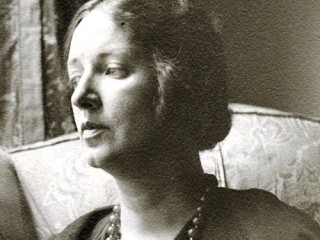
Louise Bogan biography
Date of birth : 1897-08-11
Date of death : 1970-02-04
Birthplace : Livermore Falls, Maine, U.S.
Nationality : American
Category : Famous Figures
Last modified : 2011-06-07
Credited as : Poet, poetry critic, Journey Around My Room: The Autobiography of Louise Bogan
0 votes so far
Bogan's poetic style was unlike that of Ezra Pound or T. S. Eliot. Suzanne Clark, an English Professor from the University of Oregon, stated that Bogan often refers to her female speakers as "the locus of intemperate, dangerous, antisocial desires." This coincides with the notion that Bogan brought a different perspective to the traditional viewpoint of women.
Not only was it difficult being a female poet in the 30s and 40s, but her lower-middle-class Irish background and limited education also brought on much ambivalence and contradiction for Louise Bogan. She even refused to review women poets in her early career and stated, "I have found from bitter experience that one woman poet is at a disadvantage in reviewing another, if the review be not laudatory." Bogan did not discuss intimate details of her life (and disdained such confessional poets as Robert Lowell and John Berryman).
Most of her work was published before 1938. This includes Body of This Death (1923), Dark Summer (1929) and The Sleeping Fury (1937). She also translated works by Ernst Jünger, Goethe, and Jules Renard. Later in Bogan's life, a volume of her collected works, The Blue Estuaries: Poems 1923-1968, was published with such poems as "The Dream" and "Women".
In late 1969, shortly before her death, she ended her thirty-eight year career as a reviewer for The New Yorker stating, "No more pronouncements on lousy verse. No more hidden competition. No more struggling not to be a square."
One of her admirers was W. H. Auden.
Her poetry was published in The New Republic, The Nation, Poetry: A Magazine of Verse, Scribner's and Atlantic Monthly. Her "Collected Poems: 1923-1953" won her the Bollingen award in 1955 as well as an award from the Academy of American Poets in 1959, and she was the poetry reviewer of The New Yorker from 1931 until 1969, when she retired. She was a strong supporter, as well as a friend, of the poet Theodore Roethke.
In a letter to Edmund Wilson, she detailed a raucous affair that she and the yet-unpublished Roethke carried on in 1935, during the time between his expulsion from Lafayette College and his return to Michigan. At the time she seemed little impressed by what she called his "very, very small lyrics"; she seems to have viewed the affair as, at most, a possible source for her own work (see What the Woman Lived: Collected letters of Louise Bogan).
On February 4, 1970, Louise Bogan died of a heart attack in New York City. The Archives and Special Collections at Amherst College holds some of her papers.
A number of autobiographical pieces were published posthumously in Journey around My Room (1980). Elizabeth Frank's biography of Louise Bogan, Louise Bogan: A Portrait, won a Pulitzer Prize in 1986. Ruth Anderson's sound poem I Come Out of Your Sleep (revised and recorded on Sinopah 1997 XI) is constructed from speech sounds in Bogan's poem "Little Lobelia".
Author of books:
Body of This Death (1923, poetry)
Dark Summer (1929, poetry)
The Sleeping Fury (1937, poetry)
Poems and New Poems (1941, poetry)
Achievement in American Poetry, 1900–1950 (1951, criticism)
Selected Criticism: Prose, Poetry (1955, criticism)
The Blue Estuaries: Poems 1923–1968 (1968, poetry)
A Poet's Alphabet (1970, poetry)
What the Woman Lived: Selected Letters of Louise Bogan, 1920–1970 (1973, letters)
Journey Around My Room: The Autobiography of Louise Bogan: A Mosaic (1980)
















